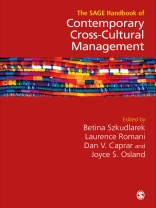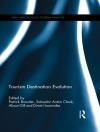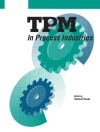This Handbook presents a comprehensive and contemporary compendium of the field of cross-cultural management (CCM). In recognition of current trends regarding migration, political ethnocentrisms and increasing nationalism, the chapters in this volume not only cover the traditional domains of CCM such as expatriation, global (virtual) teamwork and leadership, but also examine emerging topics such as bi/multi-culturalism, migration, religion and more, all considered from a global perspective. The result is a Handbook that acknowledges and builds on a variety of research traditions (from mainstream to critical), updates existing knowledge in relation to current challenges, and sets the direction for future research and developments, making this an invaluable resource for researchers in the field, and across related areas of international business, management, and intercultural relations.
Part 1: Multiple Research Paradigms for the Study of Culture
Part 2: Research Methods in Cross-Cultural Management
Part 3: Cross-Cultural Management and Intersecting Fields of Study
Part 4: Individuals and Teams in Cross-Cultural Management
Part 5: Global mobility and Cross-Cultural Management
Part 6: Developing Intercultural Competence
Tabla de materias
Introduction: Contemporary Shifts in Cross-Cultural Management – Betina Szkudlarek, Laurence Romani, Dan Caprar, & Joyce Osland
Setting the Stage – Cross-Cultural Interaction: Creating Success in the Twenty-First Century – Nancy J. Adler & Zeynep Aycan
Part 1: Multiple Research Paradigms for the Study of Culture
Chapter 1: Culture in Cross-Cultural Management: its Seminal Contributors from a Positivist Perspective – Sonja Sackmann
Chapter 2: Interpretive Approaches to Culture – Martine Cardel Gertsen & Mette Zølner
Chapter 3: Critical Perspectives on Cross-Critical Management – Laurence Romani, Mehdi Boussebaa, & Terence Jackson
Chapter 4: The Concept of Culture in CCM: Genealogical Considerations – Jasmin Mahadevan
Chapter 5: On Paradigm Tolerance in Cross-Cultural Management Research – Mark Mendenhall & Thomas Hippler
Part 2: Research Methods in Cross-Cultural Management
Chapter 6: Survey Methods in Cross-Cultural Management – Yuan Liao
Chapter 7: Experimental Methods for Cross-Cultural Management – Ronald Fischer & Johannes Alfons Karl
Chapter 8: Ethnography and Cross-Cultural Management – Fiona Moore & Jasmin Mahadevan
Chapter 9: Methods of Critical Cross-Cultural Management – Laurence Romani, Jasmin Mahadevan, & Henriett Primecz
Chapter 10: The Uneasy Relationship Between the Case Study and Cross-Cultural Management – Rebecca Piekkari, Catherine Welch, & Mette Zølner
Chapter 11: Towards Greater Methodological Awareness and Researcher Reflexivity – Anne-Marie Søderberg
Part 3: Cross-Cultural Management and Intersecting Fields of Study
Chapter 12: Languages and Cross-Cultural Management – Susanne Tietze & Rebecca Piekkari
Chapter 13: Cross-Cultural Issues in Knowledge Management: A Multi-Discourse Review – Harun Emre Yildiz
Chapter 14: Global Talent Management – Hugh Scullion, Martin Mullholland, & Monica Zaharie
Chapter 15: Ethics in the Context of Cross-Cultural Management – Ilona Szocs & Christof Miska
Chapter 16: The Role of Religion in Cross-Cultural Management: Three Perspectives – Tuomo Peltonen
Chapter 17: Cross-Cultural and Diversity Management Intersecting in Global Diversity Management: Tensions and Opportunities – Laurence Romani & Charlotte Holgersson
Chapter 18: Producing Knowledge on Cross-Cultural Management: Conditions, Connections, Consequences – Janne Tienari
Part 4: Individuals and Teams in Cross-Cultural Management
Chapter 19: Cross-Cultural Management & Cultural Identity: Past Perspectives and Present Prerequisites – Mary Yoko Brannen
Chapter 20: Culture, Context, and Work Motivation – Carlos J. Sanchez-Runde & Richard M. Steers
Chapter 21: Cross-Cultural Management and Intercultural Communication – Mary M. Meares & Janet M. Bennett
Chapter 22: The Role of Trust in Cross-Cultural Management – Markus Pudelko & Jiaxuan Liu
Chapter 23: Cross-Cultural Teamwork – Mary Zellmer-Bruhn & Mary M. Maloney
Chapter 24: Cross-Cultural Comparative Leadership Studies: A Critical Look to the Future – Ann Herd & Kevin Lowe
Chapter 25: The Birth of a New Field from CCM: Global Leadership – Joyce S. Osland, Rikke Kristine Nielsen, Mark M. Mendenhall, & Allan Bird
Chapter 26: Some Thoughts on Cross-Cultural Management Research – David C. Thomas
Part 5: Global Mobility and Cross-Cultural Management
Chapter 27: Global migration and cross-cultural management: Understanding the past, moving towards the future – Eun Su Lee, Duc Cuong Nguyen, & Betina Szkudlarek
Chapter 28: The Changing Context of Expatriation and its Impact on Cross-Cultural Management – Yvonne Mc Nulty & Chris Brewster
Chapter 29: A ′Change′ Perspective of Repatriation: Review and Research Recommendations – Eren Akkan, B. Sebastian Reiche, & Mila B. Lazarova
Chapter 30: Refugees and Cross-Cultural Management Studies – Priya A. Roy, Betina Szkudlarek, & Dan V. Caprar
Chapter 31: The Nonlinear Relationships in Cross-Cultural Management and Global Mobility – Paula Caligiuri & Jaime Bonache
Part 6: Developing Intercultural Competence
Chapter 32: Conceptualizing Cross-Cultural Management Competence – Snejina Michailova, Nigel Holden, & Smita Paul
Chapter 33: Developing Intercultural Competency: With a Focus on Higher Education – Allan Bird, Gary Oddou & Michael Harris Bond
Chapter 34: Cross-Cultural Training – Vasyl Taras, Yonghong Liu, Anju Mehta, Madelynn R.D. Stackhouse, & Maria Alejandra Gonzalez-Perez
Chapter 35: Developing Intercultural Management Competences: The Next Frontier is Inward Bound – Martha Maznevski
Sobre el autor
Joyce Osland, Ph.D. is the Lucas Endowed Professor of Global Leadership and Executive Director of the Global Leadership Advancement Center at San Jose State University. In addition to founding the center, she also co-founded the innovative GLLab, which takes an assessment center approach to global leadership development. Joyce won her field’s highest teaching award based on her contributions to global leadership development and experiential learning. She is also a prolific, award-winning scholar with over 150 publications. Joyce co-edits Advances in Global Leadership and Global Leadership: Research, Practices, and Development. In addition to speaking, consulting and training at global companies, non-profits and universities, Joyce is a senior partner of the Kozai Group, which creates instruments that assess global competencies. Prior to becoming an academic, Joyce lived and worked for 14 years in seven countries, primarily in the field of international development and training.












